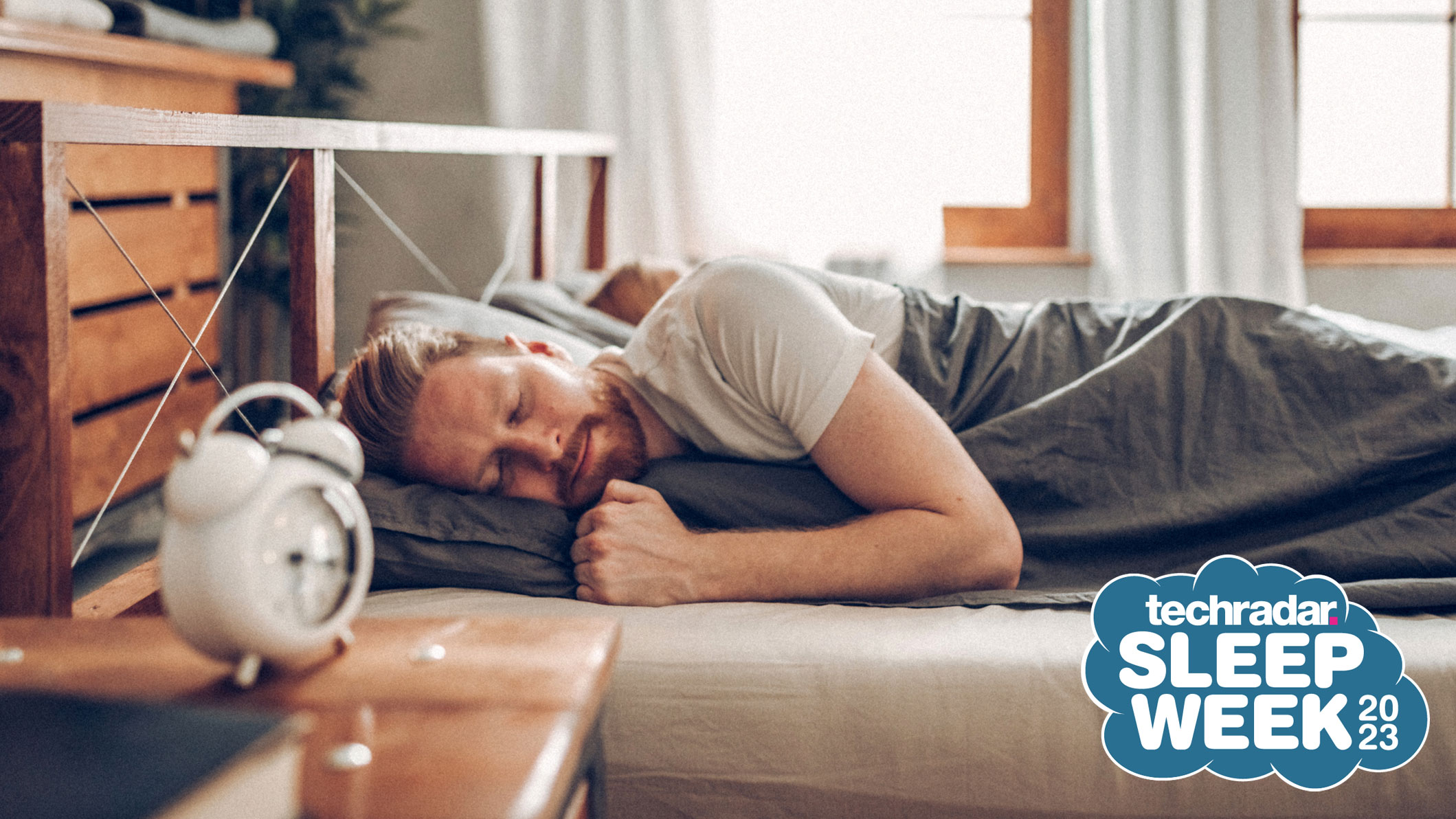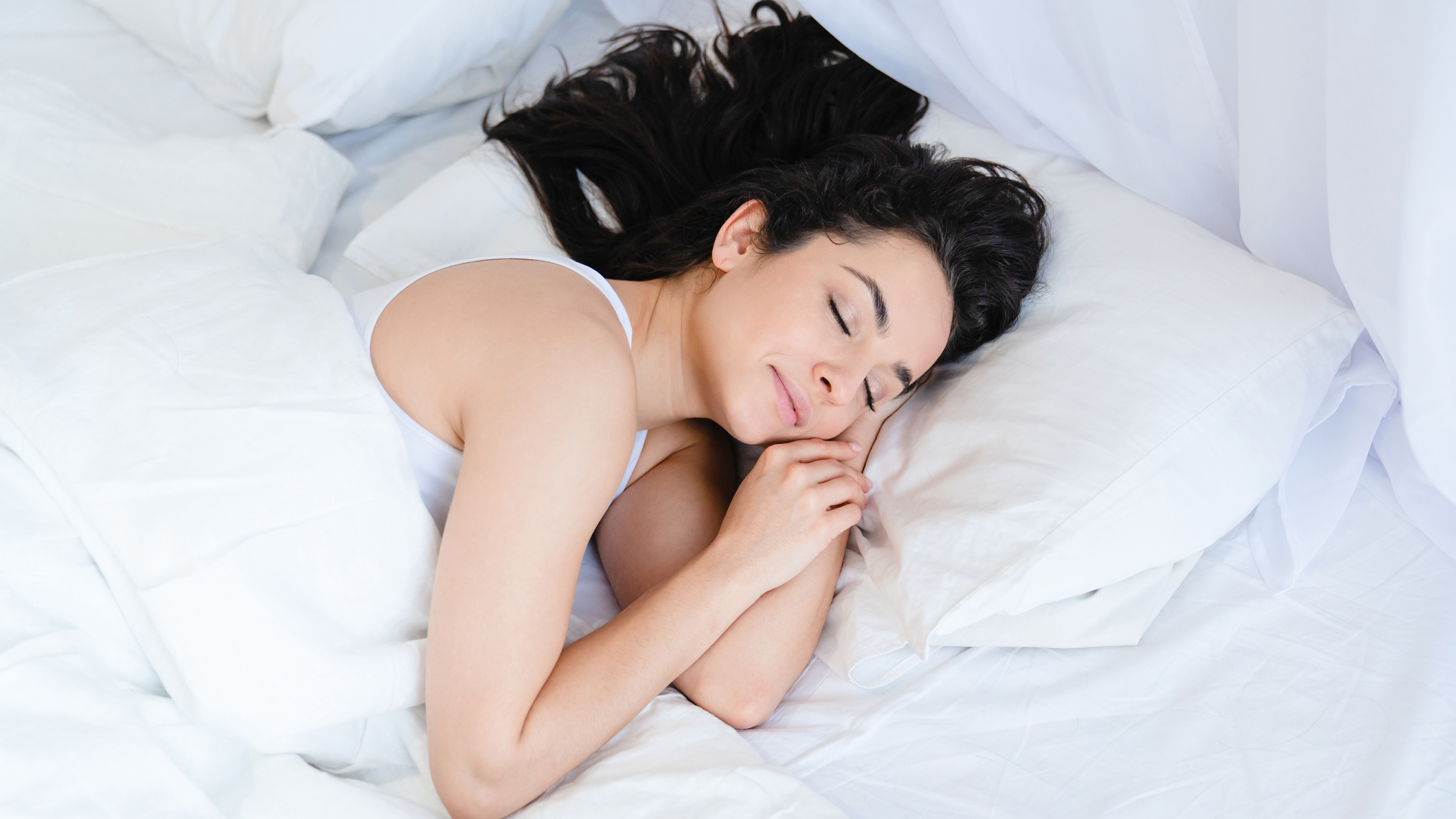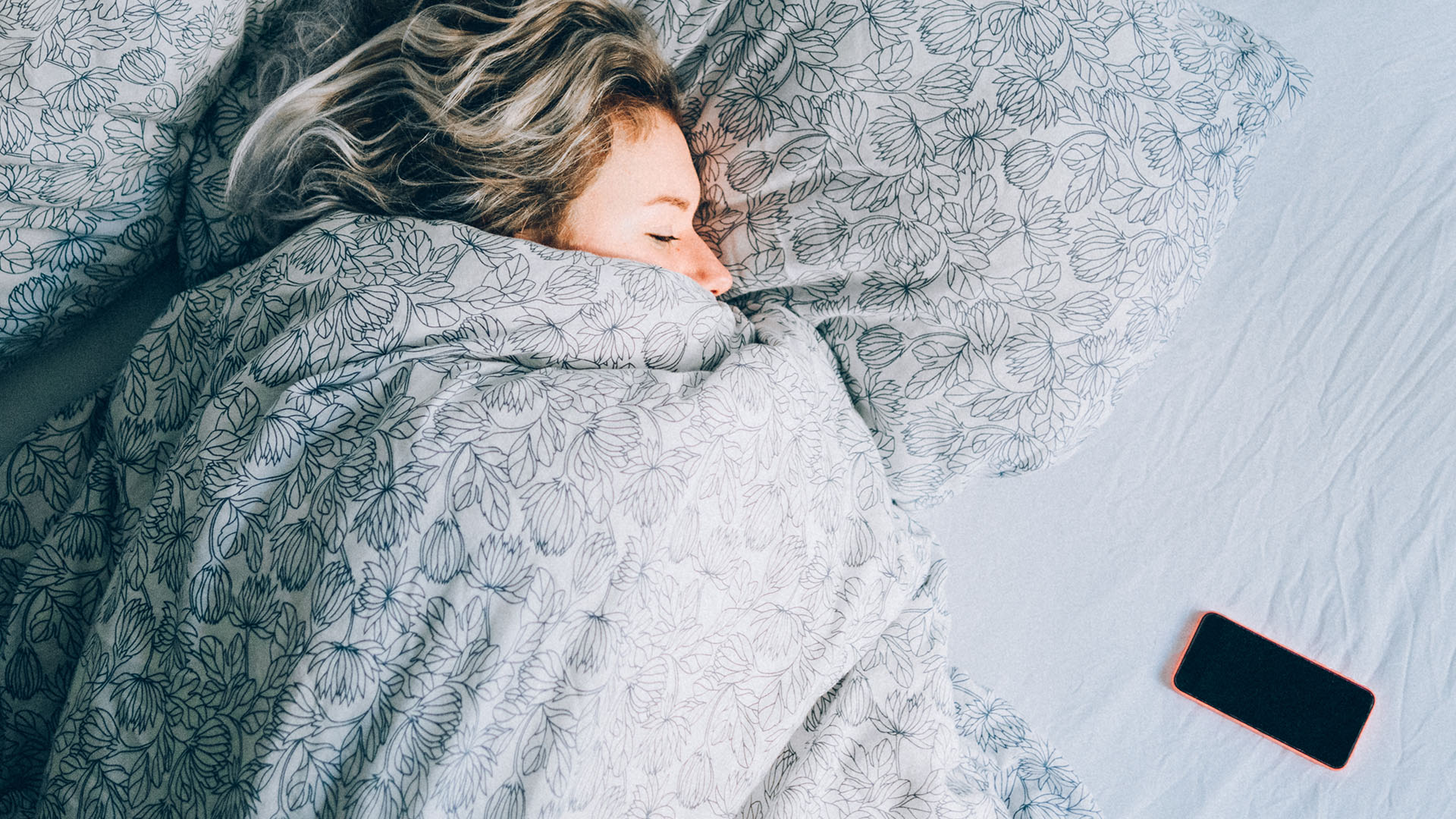What are sleep cycles and how can they affect your sleep?
We talk to an expert about how to improve your sleep cycles

Most of us take sleep for granted, but the right amount and type of sleep can make us feel focused, and healthy and have a restorative effect on our bodies.
Getting the right type of sleep can come down to understanding our sleep cycles, how we move through them and how long we stay in each stage of the sleep. But, what are sleep cycles and how can spending time in a particular sleep stage make us feel better the next day?
Here we take a closer look at how sleep cycles work, as well as examining the other factors that could affect your sleep cycles. We'll examine how factors such as alcohol and exercise can affect them, not to mention the importance of good sleep hygiene, including choosing the best mattress and the best pillows for a better night's sleep.
Dr. Chelsie Rohrscheib, Ph.D., head sleep expert and neuroscientist at Wesper explains what sleep cycles are and how we can improve them for a good night's sleep.
What are sleep cycles?
Sleep cycles normally last between 75 and 90 minutes each and it's normal to wake up when one cycle ends and another one begins. Dependent on how long we sleep most of us have around 4-6 sleep cycles per night. They are split into REM sleep and non-REM.
Sleep cycles give our body the chance to repair and enter into the different stages of sleep, says Rohrscheib, explaining that there are four stages to every sleep cycle. “There are 3 Non-REM stages, stage 1 which is light sleep, stage 2 sleep, which is a medium sleep and transitionary stage, and stage 3 deep, slow wave sleep, we then move into stage 4, Rapid Eye Movement (REM).”
“Every stage is essential for regulating sleep and maintaining health, however, stages 1 and 2 are important for initiating sleep and preparing the brain and body for stages 3 and 4.”
Sign up for breaking news, reviews, opinion, top tech deals, and more.
Our brain waves dictate our sleep cycles and how quickly we move on from one stage of sleep to another, but each one is important as the next, in order to give our bodies and mind time to rest and repair themselves for the next day.
What are the stages of a sleep cycle?

Stage 1: Light sleep
If you’ve woken up by the tiniest sound, it’s probably because you’re still in a light sleep, the non-REM sleep cycle which occurs when we immediately fall asleep. It’s the lightest stage of sleep and normally lasts for around 5 minutes, although it can last for up to 10. Without this stage of sleep your brain and body wouldn’t be ready for the next stages as your muscles start to relax and your brain and heartbeat start to slow.
Stage 2: medium sleep
This non-REM sleep cycle leads follows stage 1 lighter sleep, where you can still wake up easily, but your body is becoming more relaxed as your heart rate lowers even more, your temperature drops and your eyes stop moving. Your brain will also start to produce sleep spindles, a function which is said to be important for memory consolidation.
According to the Sleep Foundation, this is the stage of sleep we spent most of our time in, around 50 per cent in fact, as when our sleep is interrupted and we’re not fully awake this is the stage of sleep we’re likely to go back into straight away.
Lighter sleep in the first two stages is better for napping, this is why experts recommend you keep naps short so you don’t wake up during deep sleep - if you do you’ll fund it harder to wake up.
Stage 3: deep sleep
As you progress into stage three you'll fall into a deeper sleep where the body starts to repair - boosting cognitive functions and your immune system.
Rohrscheib explains that stages 3 and 4 are especially important for accomplishing many biological functions: “These functions include cell and tissue repair, hormone release, immune system strengthening, brain cell maintenance, brain waste clearance, memory consolidation, and energy conservation.”
While you’re in this stage your body is also preparing for REM sleep with the brain releasing delta waves - this is why this stage can also be known as delta sleep or slow-wave sleep (SWS). Some studies have even shown that music which mimics delta waves can help us get better sleep.
Stage 4: REM sleep
If you’ve woken up from a good night's sleep and remembered a dream vividly it could be down to the amount of REM sleep you’ve had. REM stands for rapid eye movement as when you’re in this stage of sleep your eyes will have bursts of fast movement, which experts say is connected to brain activity.
Your brain activity will be quite intense during this phase of sleep, hence why dreams are so vivid; you also lose muscle control, which prevents you from acting out your dreams and which can also lead to the frightening (but harmless) condition known as sleep paralysis.
Getting as much REM sleep as possible – around 10-20 minutes each cycle – is important for a healthy brain and helps with memory function and even creativity levels.
How long are sleep cycles?
We cycle through 4-6 cycles of sleep per night, and Rohrscheib explains that the average adult sleep cycle is 75-90 minutes long. "The length of time it takes an individual to complete a cycle and how much time they spend in each stage is mostly dependent on their personal genetics," she adds.
During these cycles, we spend the most time in the second stage of sleep, while experts believe that we should be getting around 90 minutes of REM sleep a night, in order to wake up feeling refreshed. This means we should spend around 20 minutes of each each cycle in REM sleep.
Calculating sleep cycles

The simplest way to calculate your sleep cycle is to determine the total sleep time that is appropriate for you, explains the sleep expert.
"Adults need 7-9 hours of sleep per night to function and stay healthy. Identifying your sleep length sleep spot, which allows you to feel well-rested and alert the next morning is the best indication that you are properly moving through your sleep cycle and spending enough time in each sleep stage."
The majority of the best smartwatches also have sleep tracking which can accurately determine how long you spend in each sleep cycle. If you're waking up tired or groggy, study the statistics and see if you're lacking time in one stage of sleep; you might also that your alarm is going off while you're in the middle of a deep sleep stage.
How to improve your sleep by understanding your sleep cycles
Understanding how each stage of your sleep cycle affects your health and well-being can help you address your total sleep time and sleep quality, says Rohrscheib.
"If you feel like you are getting sufficient sleeping hours but still don't feel well rested, this could indicate that your sleep is light or restless and you're not spending enough time in the deeper, more restorative stages of sleep."
But, how can you improve your time in these deeper more restorative sleep stages? Good sleep hygiene and mindfulness around what you do in your waking hours will help you sleep deeper.
Experts believe that understanding your sleep window and sticking to it, for example going to bed at 10 and waking at 7, helps to prepare your body for sleep every day. Sleep hygiene and comfort are also key - no one wants to wake up because of a lumpy mattress or because light is shining in through your windows, so keep your bedroom dark and as comfortable as possible.
Limiting alcohol and caffeine before your bedtime is also recommended. Studies show that too much alcohol will mean you won't spend much time in deep or REM stages of sleep. Exercising and eating a good diet will also help to increase you time in deep sleep (here's more on how exercise affects sleep and what foods to eat to sleep better).

Dr. Rohrscheib is a sleep expert, neuroscientist, and sleep consultant with over 10 years of experience in the field of sleep. She holds a bachelor’s degree in Biomedical Science with Honors and a Ph.D. in Neuroscience with a specialty in sleep genetics. She also worked in clinical trials where she oversaw sleep apnea research.
Nectar Sleep Awareness Week Sale: 33% off everything
Sleep Week savings - Nectar is celebrating Sleep Awareness Week by taking 33% off all its mattresses. This means that the ever-popular Nectar Mattress is available from $359 in a twin size, while a queen will cost you $699. All Nectar's mattress are available in memory foam and hybrid options, and we rate them among the best in the business, so don't miss out on this deal!
This article is part of TechRadar's Sleep Week 2023 celebration (running until Saturday 18 March), a week-long look at all things slumber. We'll be bringing you proven techniques and tips to help you sleep better, and have rounded-up all the top-rated tech to transform your sleep.

Sarah is a freelance writer - writing across titles including Woman&Home, Fit&Well, TechRadar, the Independent and the BBC. She covers a variety of subjects, including trends in beauty, business and wellness - but her biggest passions are travel and fitness. She can normally be found trying out the latest fitness class or on a plane to an exotic destination. While she loves to combine the two - signing up to do hiking holidays in LA, intense boot camps in Bali - last year she went on her dream activity holiday: paddleboarding around deserted islands in Croatia.
